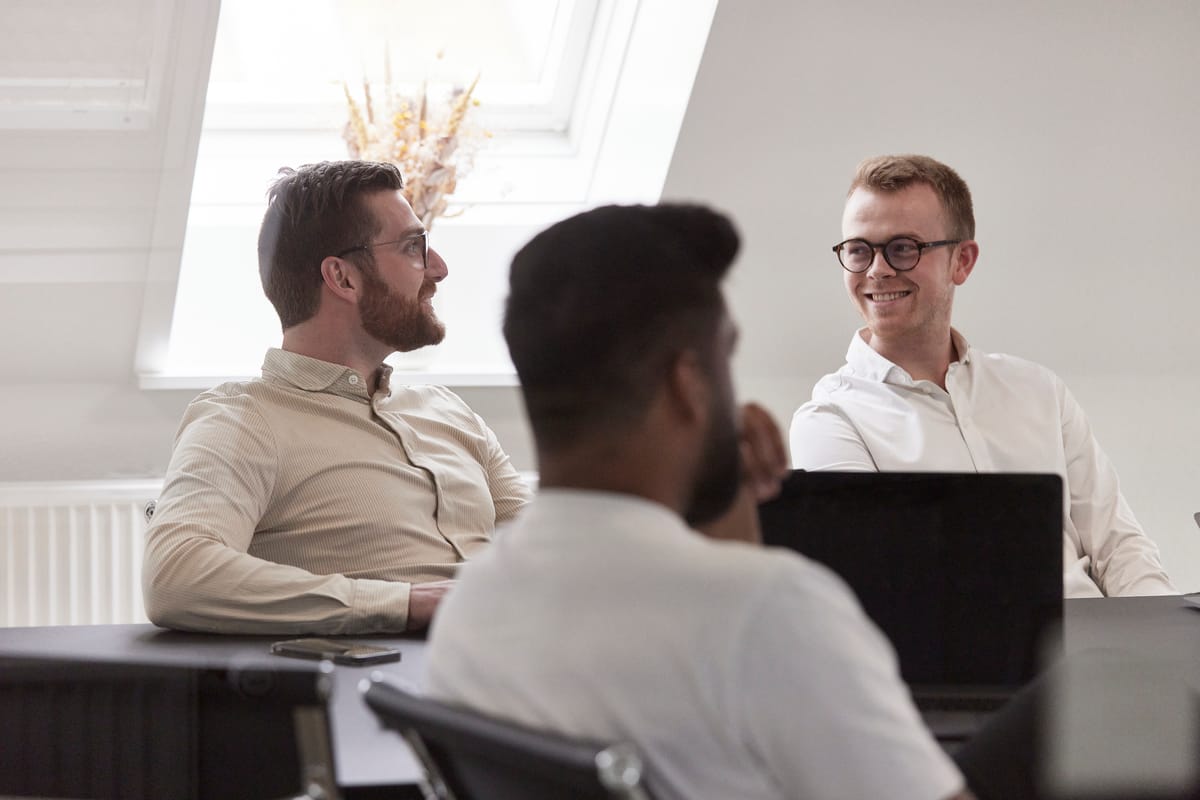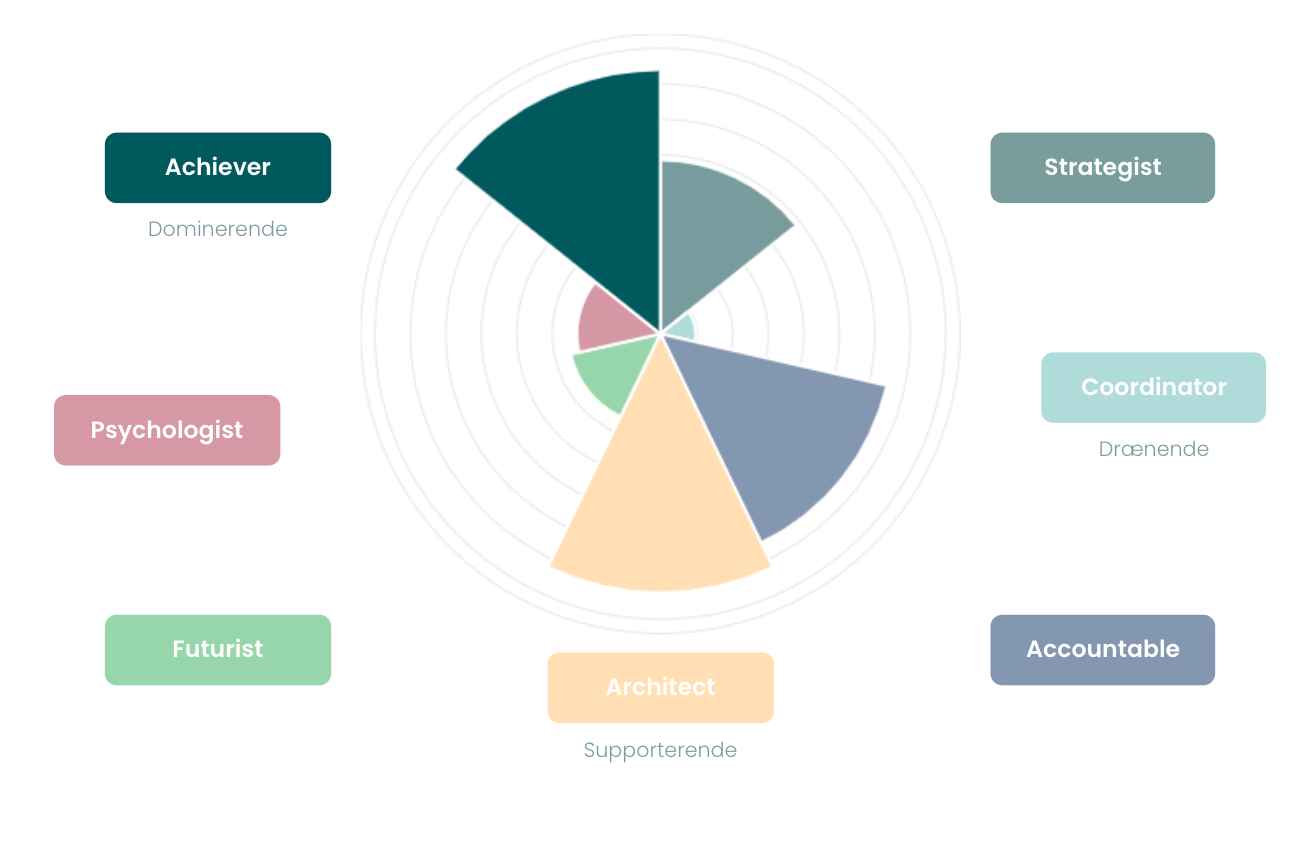Don't hire for attitude and train for skill 🧑🏽💻
I share my bullet-proof method for hiring highly skilled talents for an 8-figure agency. Subscribe to get access to the final 20% of the content including an explainer video

I have interviewed more than 150 highly skilled talents.
I have made more than 45 hires.
Through this process, I have made many mistakes and lost a lot of money, but I have also learned a thing or two.
Today, I feel that I have the golden recipe for making the right hires, which is crucial if you want to scale your agency.
👉 Technical competence
👉 Alignment and match with immediate supervisors
👉 Cultural fit
👉 The right attitude
I've dedicated myself to making our hiring process as unbiased as possible. In an unconventional move, I've stopped reading applications after 8 years of hiring. Why? Because they often present a superficial, overly glamorous image of the candidate, obscuring more than they reveal.
The truth about applications nobody has told you 🤯
Believing in the value of application letters is, to put it mildly, a waste of time.
Crafting "the perfect application" has become an art form in itself, but it reveals little about whether a candidate will genuinely thrive in the role or possess the necessary technical skills to excel.
A more enlightened approach
In my latest recruitment round, I used LinkedIn Recruiter to request CV uploads, focusing on concrete evidence of technical skills, and we asked candidates to respond to some specific questions. This approach is far more telling and effective.
From there, we prioritize bringing in the most relevant candidates for interviews. This direct interaction is more valuable, allowing us to gauge not just their technical abilities, but also their interpersonal skills, how they might mesh with their potential supervisor, and if they truly fit into our company culture.
Imagine setting the stage where every contender is asked the same question. This isn't just about fairness; it's about keeping the conversation on track and preventing it from veering into irrelevant territories.
The secret sauce?
Unbiased questioning.
For instance, if someone expresses a love for coordination, avoid leading questions like, "So, you color code your calendar, right?"
Instead, open the floor with, "Tell me more," or just simply ask for clarification.
It might feel a bit reserved, but remember, inserting your assumptions does you no favors. After all, the goal is to uncover who can do the job best, not just who you click with or what you want to hear, if it's not the truth.
3 phases in our hiring process
1) The first meeting: The screening phase
How: Google Meet 🧑🏽💻
Duration: 30 - 45 minutes ⏰
An exclusive look into our agenda for the first interview
- Step 1: I share what it's like to work at GRAFIKR (my e-commerce agency)
- The candidate has the opportunity to ask questions.
- Step 2: I explain the entire hiring process and ask, "Does this sound okay to you?" This allows the candidate to opt-out if the process seems too long or complex. Again, there's no point in wasting each other's time.
- Step 3: I ask predefined questions (I will share the questions later on in this blog post)
- Step 4: We review the candidate's CV and I ask predefined questions about each position the candidate has held (get instant access to the questions by subscribing to my blog)
- Step 5: I read our job posting aloud while sharing my screen.
- This allows the candidate to ask questions.
- Step 6: Closing questions.
Okay, since you are reading this, I guess you're curious and would like to learn more about how to make the right hires for your agency.
Am I right?
So let me be fully transperant with you and share the predefined questions for the first interview. So if you ever consider working for us, now you know some of the questions I might ask 😉
Key questions to ask for the first interview:
The first question:
"Tell me about your career goals for the next 3-5 years.
If it were entirely up to you, what would you be doing?"
In my conversations, I stress the importance of honesty, sharing that all employees are essentially "on loan" - a concept many leaders struggle to accept. Thus, my personal goal is also to help people progress on their journey. It's perfectly fine if they don't see themselves in a position with us in five years. For instance, if someone dreams of becoming the CEO of a large webshop, we'd like to support them in reaching that goal.
The second question:
b) "What kind of tasks gives you energy?"
Instead of asking, "What are you good at?" or "what are your strengths?" I find that the tasks that energize someone are often those they excel at. It's a different way to uncover their strengths.
The third question:
"Which tasks drain you from energy? Which tasks are boring"
Others might ask, "What are you less good at?" I get to the answer here but by framing the question differently.
I will save the closing questions of the first interview for those of you who sign up for my newsletter 👋🏼 (check the buttom right corner at your screen)
2) The second meeting: A deep dive with 40 predefined questions
How: In-person 🤝
Duration: 45 - 60 minutes ⏰
Progressing to the second round, I arm myself with 40 predefined questions.
Presented neutrally and consistently, we aim for the utmost impartiality. Covering various topics, these questions are linked to something called "TT38" which is a talent test, a specialized tool that zeroes in on a candidate's top talents and non talents.
In our everyday life at the office convert the TT38 to a simplified version. Below is a insight into my talents:

You won't be able to copy my 40 predefined questions, but I can give you a glimpse into what some of the questions might look like.
Each question falls under a main category that we explore. For example, we have a category called "Analysis and Problem-Solving" to which we ask:
Describe how you tackle the challenges you encounter along the way.
What's the most recent problem you had to solve in your current or previous role?
Tell me about a time when you anticipated a problem and addressed it with timely care to prevent it from becoming an issue.
When we conduct the second interview, we prefer to do it in person at our office, and there will always be the immediate supervisor, a partner, or the HR manager present, with one person responsible for taking notes and another asking the questions.
3) Third round: The talent test 🥊
- How: Asynchronous and online (you send a test to the candidate)
- Invested time for the candidate: It takes ≈ 20 - 30 minutes to take the test
- Analyzing the results: 15 minutes
- Providing feedback: 15 minutes (it's important you do this, even though you'll reject the candidate)
Now we've reached round 3, and if we feel there's a match, we send out the official TT38 test. At this stage, we're typically left with 2 to 3 candidates. So the field has really been narrowed down.
We compare the qualitative responses we received in round 2 with the candidate's answers from the official TT38 test. This way, we can see if there's a correlation or a mismatch.
If you really are looking into scaling your agency, getting the right people on board is crucial. And it can cost you A LOT of money if you hire the wrong - the cost are higher than what you think.
If you would like to read more tips on hiring and the rest of the predefined questions from my bulletproof framework, then hit the subscribe button and the rest of the content can be read below here:
Exclusive content for members only 🎉
More details about our hiring process
This content is exclusively available to you because you're a subscriber. So, thank you so much. 🙏🏼
First, I want to share the questions and give you insight into the technique used in the first job interview, where you review the candidate's CV.
When reviewing the CV: You start in reverse chronological order and ask the following for each job:
- Why did you choose to take a job at X?
(This can reveal the candidate's motivation to the interviewer) - What were your specific and measurable responsible for at X?
(Does the candidate understand the value they created?) - How would you rate your own performance on a scale from 1-10 at X?
(This can be cross-checked at the end by obtaining references)
Then, you progressively move closer to the present, where you as the interviewer can reflect on whether the answers change and if the candidate is hiding something. It is a red flag if the level of detail in the responses diminishes 🆘
After this part is done, you read the job posting aloud, which I explained earlier in the blog post. So, we will not delve further into that for now.
At the end of the first interview, you can ask the following questions as a conclusion:
- What is your time horizon for a new job? When can you start?
- Is there anything important we haven't covered?
(if you've created psychological safety during the conversation, this question gives the candidate the opportunity to disclose anything, e.g., a hidden disability. Others may also ask about something concerning the workplace that matters to them) - What's most important to you when choosing a new job?
(watch if their motivation aligns with your company's values) - Are you involved in other processes that require us to expedite our process?
If you feel comfortable, I personally prefer to give instant feedback. Explain why the candidate has either moved on to round 2 or why you had to give a rejection.
The 40 predefined questions for round 2...
Sorry, but you can't copy them because they are specifically made for my agency. However, if you're curious, please reach out to me on LinkedIn, and I can offer you a 15-minute introduction that I hope will inspire you.